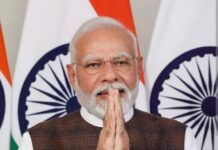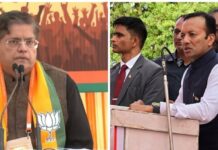By Our Correspondent
NEW DELHI/BHUBANESWAR: The 2002 Batch IAS Dr. Krishan Kumar who was serving as Joint Secretary in Ministry of Commerce and was handling crucial sectors in Ministry of Commerce and coordinating G20 Trade & Investment Working Group (TIWG), got a new assignment.
The Odisha cadre IAS Officer Dr Kumar appointed as Managing Director of National Highways and Infrastructure Development Corporation Limited (NHIDCL). Dr Kumar is all set to replace Mahmood Ahmed as MD of NHIDCL.
NHIDCL is a fully owned company of the Ministry of Road Transport & Highways, Government of India. Set up in 2014 and NHIDCL is responsible for management of a network of over 10,000 km of National Highways out of 1,15,000 km in India.
Aftermath Silkyara Tunnel Collapse, administrators with disaster management experience were needed at the helm of NHIDCL and Dr.Kumar is eminently suitable as he has handled several natural disasters as District Collector of several districts.
Dr Kumar has long experience in handling mega infrastructure projects in Odisha as Secretary of the Department of Works, Chairman OBCC and CMD IDCO.
Dr Kumar had also played a key role in the Shree Mandir Parikrama Project in Odisha’s pilgrimage city of Puri. Odisha Chief Minister Naveen Patnaik had applauded Dr Kumar for his committed work. However, Dr Kumar had left for Central deputation before completion of Shree Mandir Parikrama Project.
It may be noted here that NHIDCL promotes, surveys, establishes, designs, builds, operates, maintains and upgrades National Highways and Strategic Roads including interconnecting roads in parts of the country which share international boundaries with neighboring countries. The regional connectivity so enhanced would promote cross border trade and commerce and help safeguard India’s international borders.
This would lead to the formation of a more integrated and economically consolidated South and South East Asia. In addition, there would be overall economic benefits for the local population and help integrate the peripheral areas with the mainstream in a more robust manner.






























